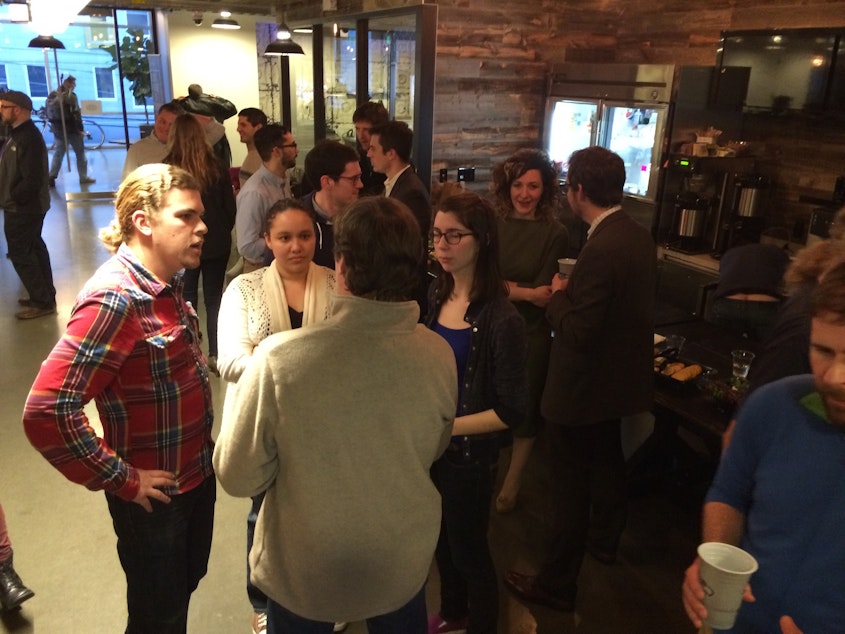What To Do About Seattle's Terrible Commute? Hack It

Seattle’s strong growth means full buses and congested roads. The City of Seattle says maybe it should also mean more help for commuters. It’s holding a hackathon, bringing people together to build new tools that can help everyone get around.
A meeting room in South Lake Union has just about everybody here. There are data folks from the government agencies and the big data companies – Google and INRIX. And coders.
All of them are here to start the search for the next big commuter tool. No one knows what it will be, but a lot of people have ideas.
"We have to provide people with actionable mapping information," Brian dePlace said, a manager at Seattle’s Department of Transportation.
He’d like an app that tells you when to give up hope of finding parking so you can change your plans, “instead of getting in your car and circling the blocks and creating more congestion for the transportation system.”
Sponsored
First they need to know what kind of data they can get.
Governments, companies and others are being asked to supply their best information for the final two weeks of this month – everything from construction permits to road closures to commuters moving around town.
“This is an opportunity for us to contribute to the common good for a problem we all absolutely abhor," Jim Bak said. He's with the traffic data company INRIX. “And that’s, how do we get around this town without sitting and staring at brake lights all the time?”
But building the tool is one thing; making it so the world will want to use it is another.
Kari Watkins is a co-creator of the popular OneBusAway app, which tells you when your next bus will pass your stop. She’s now a professor at Georgia Tech. Her advice: Talk to a lot of people.
Sponsored
“If you want to make it something big where you’ve got 100,000 users, then it’s got to be something where you’re going beyond just your own ideas," Watkins said.
This is the kick-off; tool building begins in March and the hackathon won’t be finished until late April.
People interested in joining the fun should visit Hack the Commute on seattle.gov.
